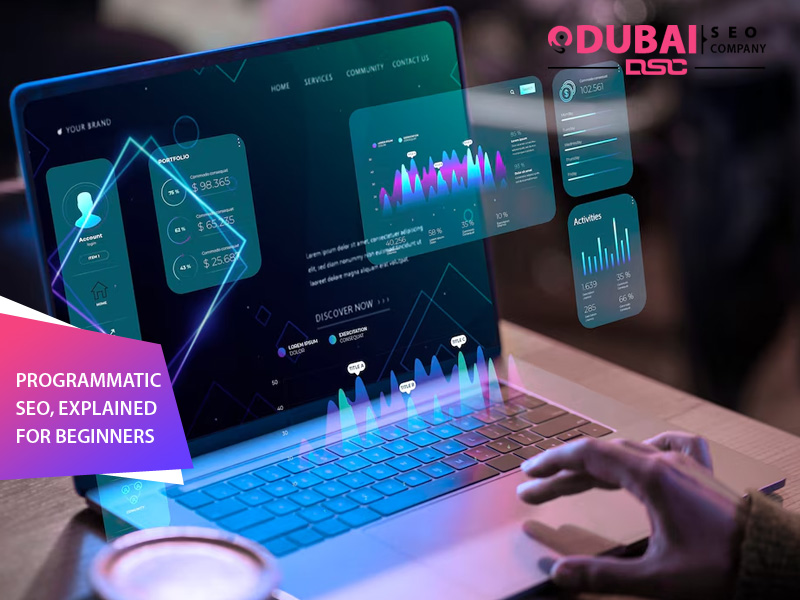Multiple websites, old ways of doing SEO, relying on human resources and manual labour, on-page optimisation, and one-word keyword optimisation are obsolete.
Also, it is highly relevant and critical in terms of driving traffic and ensuring some degree of visibility in the web presence. There is an emergent, revolutionising technique known as programmatic SEO that aims to tackle major optimisation at a much more scalable and automated level to ensure better efficiency and results.
Let us discuss more about programmatic SEO, what differentiates it from the other forms of SEO services and why this approach has become a necessity for any modern-era enterprise.
A Basic Guide: Programmatic SEO (Search Engine Optimisation)
Since complexity is growing so much in search algorithms with great speed, new content online is getting published every second. In that aspect, the business tool requires utilising programmatic SEO, which allows companies to have a competitive advantage. Because at an enormous scale, the production of content and optimisation could be automated. Thus, helping generate thousands of pages focused precisely according to search intent.
It basically generates optimised content at scale through algorithms, data analysis, and automation. So, it works very well for big websites, which have hundreds or thousands of pages, like e-commerce websites, travel booking websites, or directory-based businesses.
Thus, in this traditional SEO, every page is optimised manually, whereas template and dynamic content generation for the rapid generation of pages in a proper way.
This, of course, is found on giant e-commerce sites such as Amazon or travel sites such as Expedia. This is where these types of organisations use algorithms in the dynamic production of product pages or listings for user queries.
So, this way, every page gets specifically created with a particular keyword and search intent. They manage to handle millions of pages without having relevance or losing accuracy.
Automation and Data
Programmatic SEO is very automated. Complicated strategies do not have to be done individually; most of the work has to be put in automation mode.
However, more sophisticated algorithms and data analytics tools assist in the identification of keyword opportunities and user search behaviour, as well as content gaps. Huge chunks of data can allow businesses an opportunity to seek out patterns and trends that will inform optimised content production.
For example, a property website would utilise programmatic SEO when creating multiple pages for specific houses and neighbourhoods. Specific details such as the description of the house, price, and neighbourhood would automatically fill in. Thus, the page’s content will be both informative and highly ranked in the search engines.
Why Programmatic SEO Matters in 2025

It is not something that is not applicable in the modern world. Those who fail to implement programmatic SEO by 2025 will fall behind because search engines are becoming more relevant, intent-centred, and quality-oriented.
Recently released data by Ahrefs shows that 90.63% of all content gets zero visits from Google. One of the primary reasons why highly targeted and optimised pages are needed.
Also, due to the voice search and AI-favoured search engines moving so fast, there is a critical need for proper data-based content; hence, it is not something needed only for today.
Programmatic SEO allows business organisations to focus on fresh content with the change in their search behaviour. Therefore, they can continue appearing in the digital marketplace and will be directly competing.
Measuring the Impact of Programmatic SEO
Hence, by achieving all these, programmatic SEO will be successful across the spectrum of KPIs, which range from organic traffic to keyword ranking and conversion rates.
HubSpot statistics also report that the businesses that apply programmatic SEO experience, on average, experience a 55% increase within the first six months after organic traffic comes in. Therefore, with programmatic SEO, it is possible to track performance metrics much more thoroughly so that businesses can make data-driven decisions towards further optimisation.
One of the most important case studies would probably be that of a multi-product page e-commerce retailer that had done programmatic SEO on its product pages. Its organic traffic went up by 70%, and conversion rates went up by 35% in a year. As can be seen, clearly the business outcome of programmatic SEO is of high order.
Common Misconceptions and Challenges
It may have some benefits but does not negate its weaknesses. Often, it has been labelled one of the common myths – the cause of producing poor and irrelevant generic content.
In reality, though, with proper and successful programmatic SEO execution, content that is highly relevant and of excellent quality to a user could be produced well. The bottom line, however, is that the data and template usage should be applied with the right accuracy, completeness, and relevance.
There is a challenge in the setup to do that. A programmatic SEO strategy, which also works and saves time, requires more technology, infrastructure investment and skill development in data. Wherever such benefits as scalability or efficiency and general improvement in search visibility take more than enough time to recover the cost.
Programmatic SEO vs. Traditional SEO Services
It is important to note that programmatic SEO is complementary. Its usage does not replace the traditional services of SEO. However, it is added as an improvement to the overall performance of SEO. Traditional SEO remains indispensable for things like technical SEO audits, link building, and manual optimisation of key pages. Programmatic SEO works pretty well in terms of scaling content production and optimisation for large websites.
A hybrid approach, or a mix of traditional and programmatic SEO, is rightly used in competitive markets to maximise return on investment.
Conclusion
Programmatic SEO is the next generation of search engine optimisation that allows for efficient and effective scaling of the content strategy. As user intent, relevance, and data-driven content are the leading forces in search engines, programmatic SEO will find its way into every holistic SEO services strategy.
Most business entities have to stay in touch with the digital world; hence, the choice of programmatic SEO has already become unavoidable. This highly innovative concept opens up new areas for growth and raises the prospects of increased online visibility for greater success in a highly competitive world of search engine optimisation.

